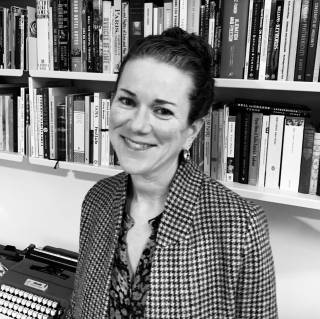Elizabeth Cooper’s scholarship, inside and outside the academy, explores the praxes of freedom that have been made possible or foreclosed as a result of social struggles in the post-emancipation “Black Atlantic” – through research and public interventions into the histories of work, racism and popular culture in Brazil, the Caribbean, and the United Kingdom.
She received her PhD in History from the University of Chicago and has held fellowships at the Institute of the Americas (UCL), the Centre for the Study of International Slavery (University of Liverpool) and the Centre for the Study of Race, Politics and Culture (University of Chicago). Elizabeth has taught at universities in the United States and the United Kingdom, including the University of Chicago, Florida International University, and the University of Nottingham. Her research has been published in journals such as Slavery and Abolition, Dialectical Anthropology and Latin American and Caribbean Ethnic Studies as well as with academic publishing houses such as Duke University Press and the University of Chicago Press.
For nearly ten years Elizabeth was the Curator of the Caribbean and Latin American Collections at the British Library. Her exhibitions include Windrush: Songs in a Strange Land (the British Library, 2018) and Sowing Roots: Caribbean Gardening Heritage (The Garden Museum, 2021-22).
Elizabeth’s current research project expands, and reconstrues, the meanings of diasporic “Caribbean gardening” through the lens of popular responses to/refutations of enslavement and plantation society. Drawing on oral history, literature, poetry and visual arts the project asks what historical and political imagination is rendered visible by attending to the memories of land, work, and horticulture that Caribbean migrants carried with them. And how Caribbean horticultural practices/memories articulated with new racial and political identities forged in the late 20th century UK.
 Close
Close


